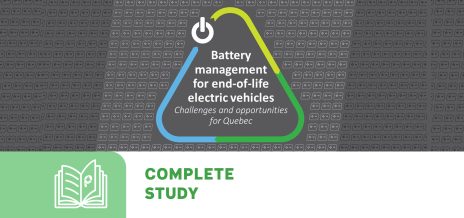Quebec's lithium-ion battery industry
Propulsion Québec is actively involved in the development of the lithium-ion battery industry for electric vehicles (EVs). This sector is one of the main opportunities for Quebec, in terms of developing the mining and manufacturing sectors, attracting foreign investment, and positioning the province as a green and reliable supplier on the world market.
Nearly 80 players, already active in every link of the value chain, are already contributing to the growth of Quebec’s EST sector. Quebec’s potential for success along the entire value chain will have a structuring impact on the entire electric and smart transportation (EST) ecosystem.
Among other things, the initiative targets green technologies for reusing and recycling lithium-ion batteries, as well as the use of strategic minerals and Quebec raw materials. Issues such as the cost of electric cars, for which the battery represents a significant proportion of the total cost, technological challenges, and the establishment of policies and processes for the recovery, recycling and reclamation of strategic minerals through green processes are at the heart of the reflections of the members of this sector.
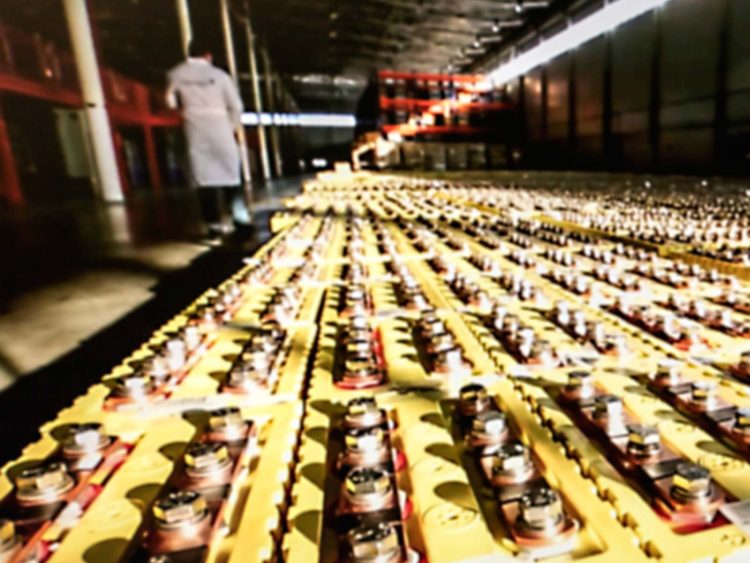
Action plan:
Promote the value proposition of Quebec batteries abroad Organize annual events and conferences for the local and global automotive industry.
Conduct a study on the strategic advantages Quebec could bring to the European and American supply chain so it can become part of their value chains.
Expand the Quebec ecosystem’s reach into Ontario, the rest of Canada, the U.S., and Europe to help cement the reputation of our ecosystem stakeholders as green, reliable, secure suppliers of battery materials and components.
Interactive tool on ambitions and progress
Discover our participative tool that enables all ecosystem players to follow the progress of the 225 initiatives of our green industrial policy, grouped under 8 key strategic ambitions.
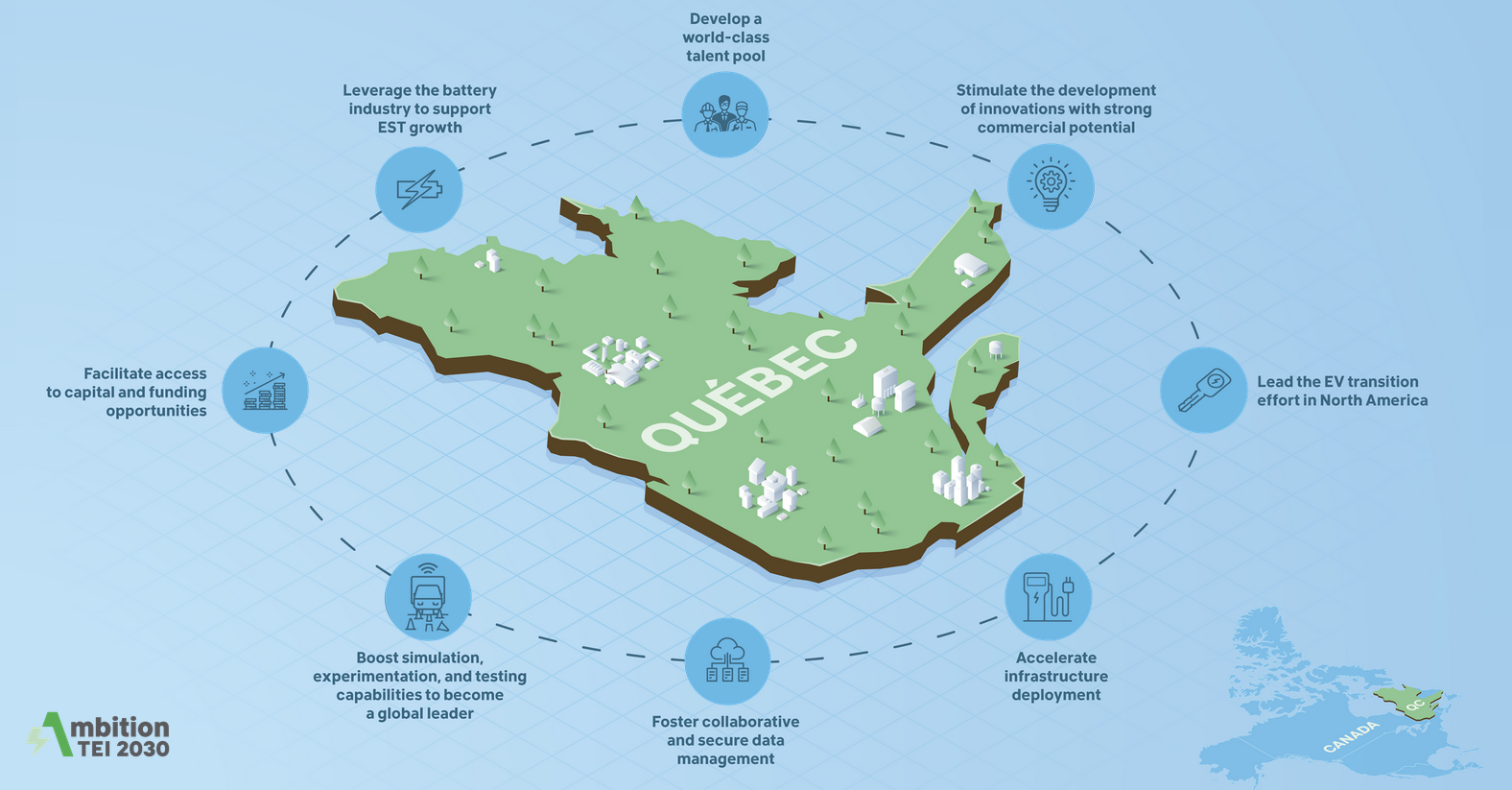
Related resources

Critical and strategic minerals (CSM) traceability pilot project for the Quebec battery sector
PILOT PROJECT FOR QUEBEC’S BATTERY INDUSTRY A number of measures, regulations and laws are currently being put in place in certain countries to secure the local supply chain, or that of allied countries, in Critical and Strategic Minerals (CSM). Europe, for example, has announced the introduction of a Battery Passport from 2027, to track the […]
Read more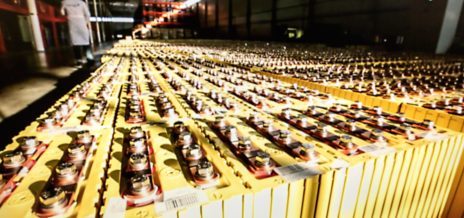
LITHIUM-ION BATTERIES : Local and international impact is on the horizon !
The lithium-ion battery sector is a key player in the future of electric and smart transportation in Quebec. Increasing announcements are highlighting the economic and environmental implications both locally and internationally.
Read more
Will industrial strategies chart a new course for the future of Quebec industries?
The Quebec economy—and more broadly the world economy—faces multiple challenges: the climate crisis, supply chain problems, labour shortages, inflation, etc. Quebec has an abundant supply of resources, know-how, and expertise; however, the next points on its agenda should include structuring, developing, and planning industrial activities.
Read more
Hosting a Charging Station?
The new Clean Fuel Regulations, SOR/2022-140, (the “Regulations”) aim to displace the use of fossil fuels and promote the use of electric and hydrogen fuel cell vehicles.
Read more
Ambition EST 2030 : a roadmap for propelling Quebec to the forefront of the electric and smart transportation industry by 2030
Propulsion Québec, the cluster for electric and smart transportation, is announcing Ambition EST 2030, a roadmap for the electric and smart transportation (EST) industry developed in partnership with Deloitte.
Read more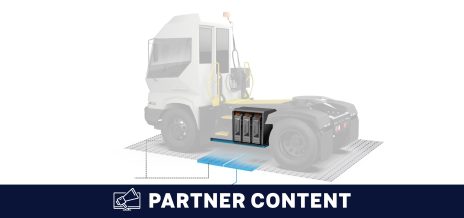
Less batteries, more autonomy: Revolutionizing the electrification of heavy-duty vocational trucks
Effenco recently launched a new, 100% electric solution that is poised to radically transform the vocational trucking sector, one of the most polluting sectors of the transportation industry.
Read more
Québec on its way to homegrown battery industry
Québec is well positioned to lead the way in lithium battery manufacturing and ramp up the transition to electric transportation.
Read more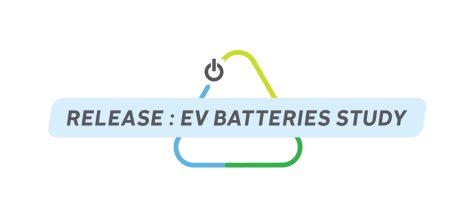
Propulsion Québec releases a new study on extended producer responsibility for end-of-life electric vehicle battery management
Propulsion Québec smart and electric vehicle cluster today released a brand new study entitled Extended Producer Responsibility for Electric Vehicle Lithium-Ion Batteries in Quebec.
Read more

